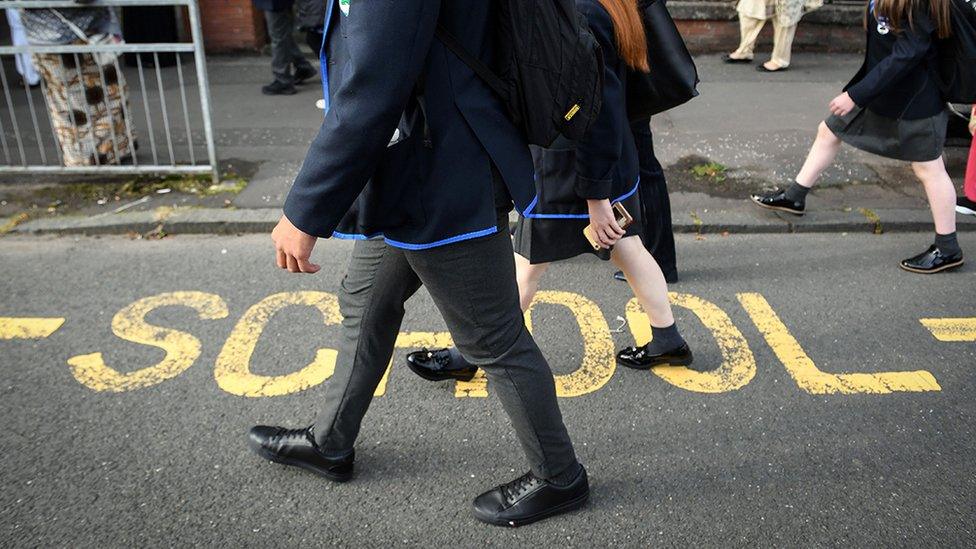Irish president criticises segregated education in Northern Ireland
- Published
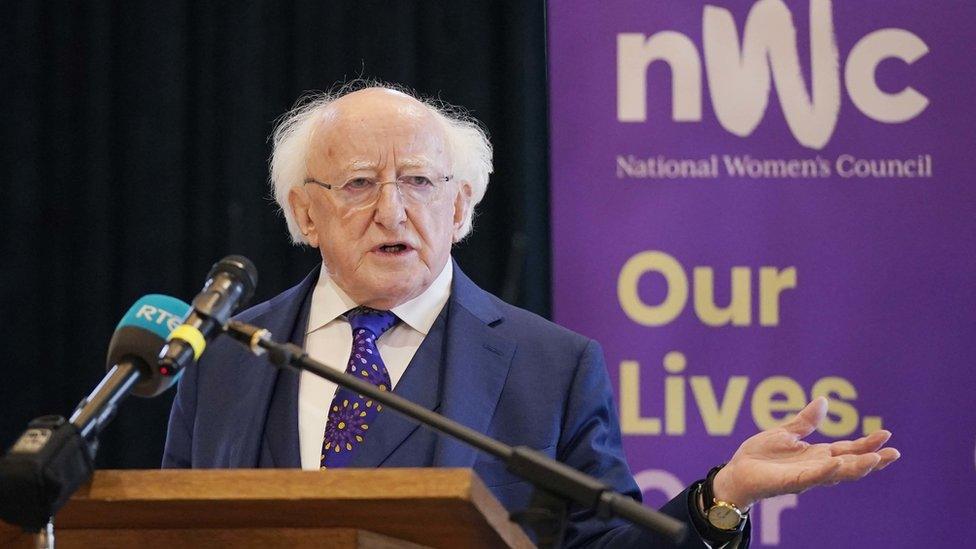
Michael D Higgins made the remarks in a speech to a conference on peacebuilding in Enniskillen
Irish President Michael D Higgins has criticised segregated education in Northern Ireland, claiming it can "exacerbate conflict" in some cases.
He added the desire by some politicians to keep schools religiously segregated was rightly seen as a "cynical" attempt to satisfy their "core support base".
"Young people should not feel segregated from others based on dangerous sectarian criteria," he said.
Mr Higgins made the comments at a peace conference in County Fermanagh.
He added there was an "urgent need" for more integrated schools, saying such teaching was key to sustaining peace in Northern Ireland.
The Irish president was invited to Enniskillen to address a conference organised by the All-Island Women's Forum and the National Women's Council of Ireland.
The event was entitled: "Women's Voices in Peacebuilding: The Unfinished Work of the Peace Process."
In a wide-ranging keynote speech, external, Mr Higgins focused on the role of education, which he said was "central to peacebuilding".
He told the audience that "93 percent of schools in Northern Ireland remain segregated, meaning that most young people are educated in either a state-funded school that predominantly attracts Protestant families, or a state-funded school maintained by the Catholic Church",
"Young people are separated in the very place where they learn and build relations," the Irish president said.
He added that pupils in Northern Ireland were segregated "not only by the schools they attend, but also by the languages they speak and the sports they play: where some schools offer Gaelic football and hurling, others provide rugby or cricket, usually exclusively".
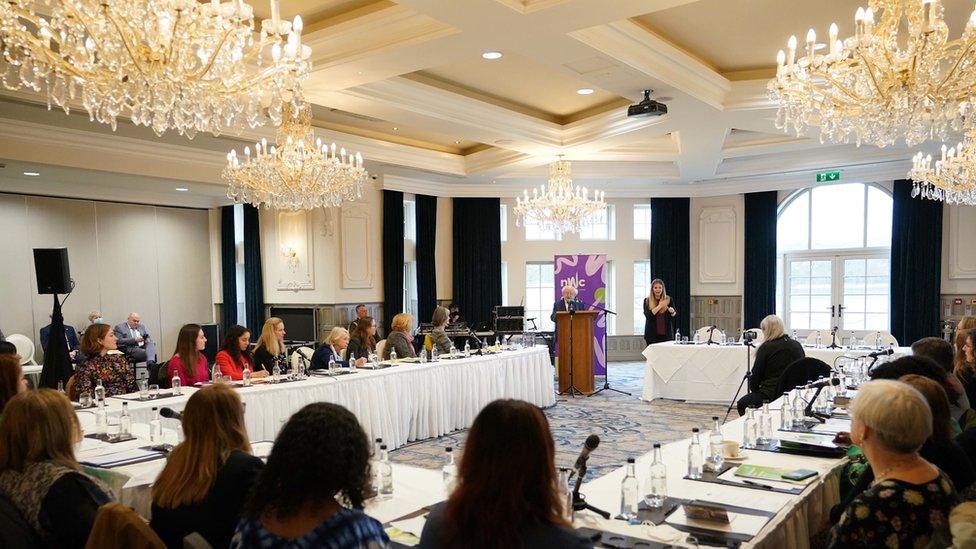
The conference was held in a hotel in Enniskillen on Thursday
Integrated schools attempt to ensure that children from diverse backgrounds are educated together and formal integrated education began in Northern Ireland 40 years ago with the opening of Lagan College in south Belfast.
But up to as recently as last year, almost a third of Northern Ireland's schools had no religious integration as all their pupils were from either an exclusively Catholic or an exclusively Protestant community background.
New legislation aimed at promoting and expanded integrated education is currently being debated in the Northern Ireland Assembly.
The private member's bill, proposed by Alliance's Kellie Armstrong, would set new government targets and increase the number of integrated school places.
However, education representatives from the four main churches were critical of aspects of the bill when giving evidence to Stormont's education committee.
Earlier this week, it was reported that some Catholic maintained and controlled schools had sent letters to parents expressing concerns about the proposals.
Mr Higgins told his audience in Enniskillen he believed strongly that integrated education "is a key element to a successful, inclusive and harmonious future in Northern Ireland".
'Exclusionary and sectarian'
He said members of the public were ahead of politicians on the issue and he criticised a "lack of political will" to reform Northern Ireland's education system.
"The ongoing desire by some political figures to keep schools religiously segregated has understandably and justifiably been interpreted by some commentators as a cynical tactic aimed at satisfying their core support base, an exclusionary and sectarian method often reinforcing notions of 'The Other'," he said.
Mr Higgins also expressed concerns about educational underachievement among Protestant pupils from economically poorer households and pointed out that paramilitaries were still active in working-class communities.
He said segregation "only fosters hostility, and harms vulnerable, disillusioned young people who can be misled by violent actors within their communities who hold significant powers of influence".
"Young people should feel that they belong in any school irrespective of their religion, or lack of religion. Young people should not feel segregated from others based on dangerous sectarian criteria that merely reinforces notions of 'The Other'," the president added.
During his speech. Mr Higgins also paid tribute to the role of women in the Northern Ireland peace process, including the late Northern Ireland secretary of state Mo Mowlam; Ireland's former deputy minister for foreign affairs Liz O'Donnell; the Women's Coalition and their campaign manager Baroness May Blood and members of the Shankill Women's Centre from Belfast.
Related topics
- Published17 February 2022
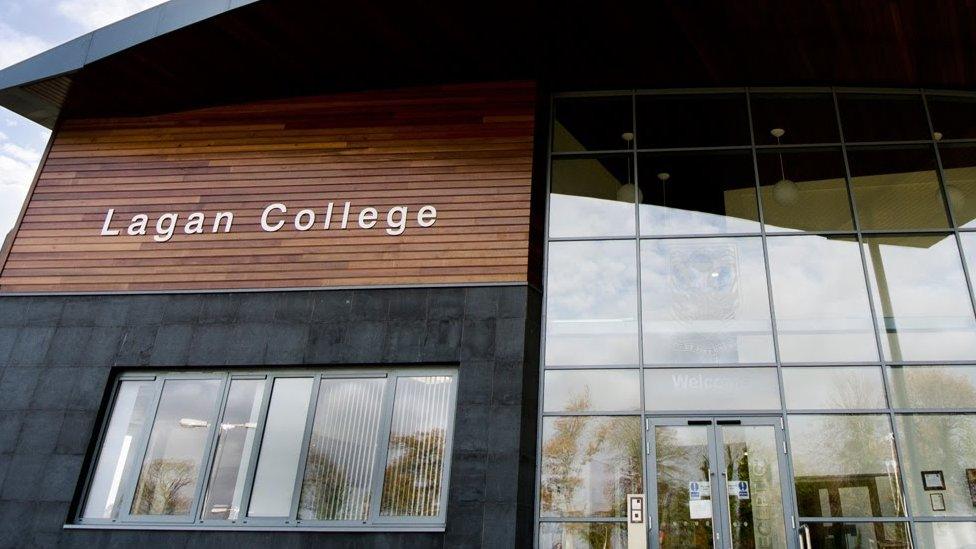
- Published14 February 2022
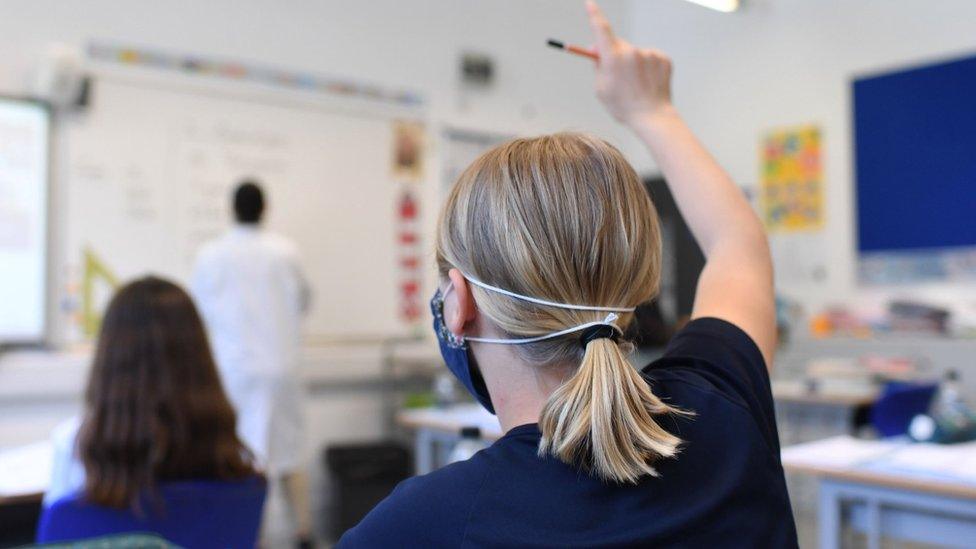
- Published11 November 2021
